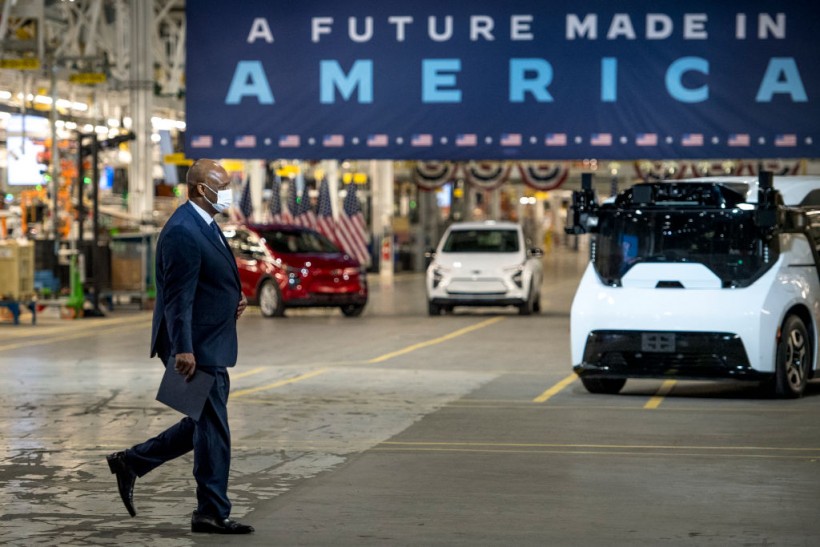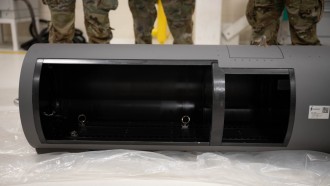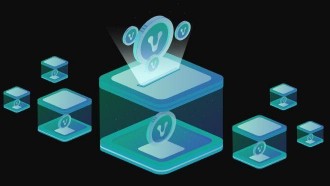In downtown Detroit, crews have installed a new technology that is revolutionary in the charging landscape for electric vehicles (EVs).
It comes as various companies and researchers around the world are finding ways to make the transportation sector more eco-friendly by introducing innovations to EV-related technologies. However, this latest technology may not be so directed towards the "surface value" because it is literally underneath a street.

DETROIT, MI - NOVEMBER 17: United Auto Workers President Ray Curry arrives at the General Motors Factory ZERO electric vehicle assembly plant on November 17, 2021 in Detroit, Michigan.
Wireless-Charging Public Roadway in Detroit Is the First in US
According to the Associated Press, crews have installed what is hailed as the first wireless-charging public roadway for EVs underneath a street in downtown Detroit.
It must be noted that vehicles equipped with receivers can charge their batteries while driving, idling, or parking above copper inductive charging coils.
The Michigan Department of Transportation said the technology will be tested and refined on a quarter-mile segment of 14th Street before being made available to the public within a few years.
Demonstrations took place on Wednesday at the Michigan Central innovation district, a center for advancing technologies and programs that address mobility barriers. It is also the same district where Ford Motor Co. is restoring the old Michigan Central train station for the development of self-driving vehicles.
Electreon, an Israel-based developer of wireless charging solutions for electric vehicles, owns the technology. The company has contracts for similar roadways in Israel, Sweden, Italy, and Germany. AP reported that Michigan Governor Gretchen Whitmer announced the pilot initiative in 2021.
Zero-Emission Mobility Future
Stefan Tongur, Electreon vice president of business development, said they would demonstrate how wireless charging could open doors for widespread EV adoption, particularly in addressing issues such as limited range, battery size and costs, and grid restrictions.
Tongur believes this project will pave the way for a zero-emission mobility future wherein EVs are normalized. Once a vehicle with a receiver approaches the charging segments, the coils beneath the road use a magnetic field to transfer electricity, charging the vehicle's battery.
According to AP, these coils activate exclusively on vehicles with receivers passing over them. The Michigan Department of Transportation and Electreon had committed to a five-year collaboration to advance the development of the electric road system.
There are also plans for the Department of Transportation to invite bids for reconstructing a section of the bustling Michigan Avenue, incorporating inductive charging.
The goal of this project aligns with the Biden administration's commitment to establishing half a million EV charging stations, considering them an integral part of its infrastructure objectives.
Authorities said the implementation of wireless-charging roadways positions Michigan and Detroit as trailblazers in EV technology. Tongur noted that, as of now, no decisions have been made regarding revenue models in Michigan.
Related Article: Startups Offering EV Battery Health Tests Scramble to Help Buyers Determine the True Value of Used EVs










